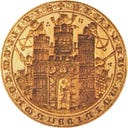The Age of the Rat
Welcome to the Age of the Rat. To help orient you, here are some ideas you might find useful, or worth thinking about.
The word “Purulent” means “consisting of, containing or discharging pus”. One of the historic uses of the word “sordid” (in early middle English) was as a synonym for “purulent”.
The word “normie” is the ultimate online insult because what it really is means you’re bad at being online, like a dumb old person who makes the obvious joke and is incapable of moving quickly. A normie opinion is a commonplace and thoughtless one, the kind your mum or dad might have. “Marvel movies are cool” is a normie opinion. But normie opinions aren’t always sedate. For discussion: isn’t “look what the trannies have done now” is also kind of normie thing to say? The Racist Facebook Uncle is the sweaty yin to the Wine Aunt’s tearstained yang.
If you’re a person for whom words matter, the way you use words will leave a moral trace, for good or ill — especially if you write them down.
You can turn off your phone and go outside for a walk — great idea — but don’t forget when you do that you’re still in the world that made the phone, and the things on the phone, and of the people who use the phone.
Here is a list of attitudes that exemplify The Age of the Rat. The following things are not necessarily considered good, (although sometimes they are) but are they definitely attitudes a good person can exemplify. Gossip, insincerity, pettiness, shallowness; the valorisation of the ugly over the beautiful, the cheap over the transcendent, the weak over the vital, and the marginal over the consequential and the essential.
The idea of “Honour” is linked to the prevailing cultural norms of your time and place; it means “great respect or esteem” and it “places an individual socially and determines his right to precedence”. What is honourable is whatever cleaves to the most widely admired and socially advantageous traits of that time. It is not possible to be in complete opposition to the spirit of your times, and be seen by the inhabitants of that time as anything other than dishonourable - wretched, weird, contemptible, embarrassing and so on.
The Age of the Rat is an age of sinister inversions. This means that much of the art, philosophy and religion that might have provided you with solace and guidance in other times will not help you here. Their meanings have been changed by the times.
Love for the less fortunate has been repurposed in secular terms as an ideology of disenfranchisement and cultural power. Mindfulness is mostly a corporate wellness strategy that you get offered instead of a pay rise, and has been severed from its religious roots. Non-attachment is a weird answer to propose to anything in a time of universal anomie, inceldom and Ketamine.
The root of the word “transcend” is the latin “transcendere”, meaning “to climb over”.
The Meiji Restoration is a period of Japanese history which saw the end of the Shogunate and the restoration of Imperial rule. One of the slogans of the Meiji Restoration was “restore the emperor, expel the foreigner.” The purpose of the Restoration was to allow Japan to exist and succeed in the world while remaining itself, without compromise or shame; which is to say with honour.
Personal honour can be internally as well as externally maintained and validated. This is a fire you kindle and shelter inside yourself. There might also be some art, religion and philosophy that you can use as fuel.
Here is a list of attitudes that are antithetical to the Age of the Rat. The conventionally beautiful, modesty (including sexual modesty), sincerity, ownership and possession, inhertance, vitality, cleanliness, wholesomeness, nobility, achievement, an idealised self, hero-worship, preservation, overcoming personal limitations.
They can’t be everywhere at once. You’re not the only one who has noticed what’s happening.
An effective way of resisting the spirit of a dark age is to find and celebrate its opposite. “Spark the fire, expel the rat”.
